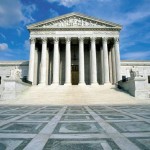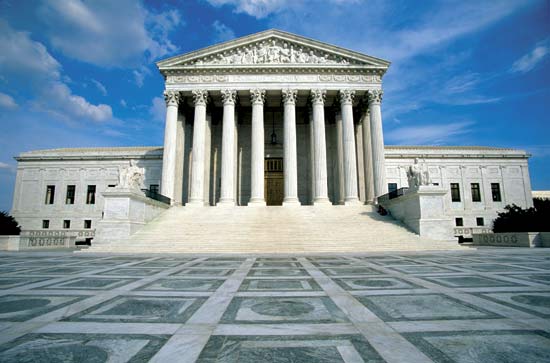On January 13, 2014, the U.S. Supreme Court denied cert in the case of Judicial Watch v. Department of Defense and Central Intelligence Agency (scroll down to page 5). 
This case arose from a FOIA request for photos and/or video of Osama Bin Laden corpse and burial at sea. The Obama Administration and CIA both claimed that these images were top secret and exempt. The government argued that the photos were “very graphic” and would inflame international attentions.
This case brings up an interesting issue with FOIA requests. Here, Judicial Watch tried to use speed as leverage by FOIA’ing the images the day after President Obama announced the death of Osama Bin Laden. The hope was that the images were not classified top secret by the time that the FOIA was received. Incidentally, the DOD had no images and the CIA indicated it had 59 images (some media reports incorrectly report 52 images).
But, in this FOIA-race, the CIA had marked the images as top secret except it was done by someone at the Agency without full authority (derivative classification). During the course of litigation, the CIA supplemented its position by filing various declarations that the images were appropriately classified and giving reasons for the same. Judicial Watch claimed that, procedurally, it was too late.
Both the trial and appellate courts held otherwise. While there was some minor criticism of the CIA’s response, the Court held that the initial classification was ratified and thus procedurally acceptable. Substantively, the explanations for the classification were deemed “plausible” and “logical.”
At least in this case, there is no ruling on whether a speedy FOIA request received prior to a document’s classification might require disclosure even if the document is later deemed classified. However, since both courts approved the CIA’s method of ratifying classification, it is not encouraging that a “race to the courthouse” approach will apply to quick-witted FOIA requesters.
For those interested in the underlying documents, see the CIA’s Response to the FOIA Request.
For the legal arguments and court opinions, see the Petition of Cert, which includes (1) the U.S. Court of Appeals for the District of Columbia’s May 2013 per curiam opinion (page 23 of PDF) and (2) the underlying April 2012 summary judgment memorandum opinion from the U.S. District Court for the District of Columbia (page 41 of PDF).
In short, SCOTUS’ denial of cert means that the May 2013 decision stands.
Meanwhile, yes, one can do a Google search for alleged photos of Bin Laden’s dead body, but those appear to be fake.


